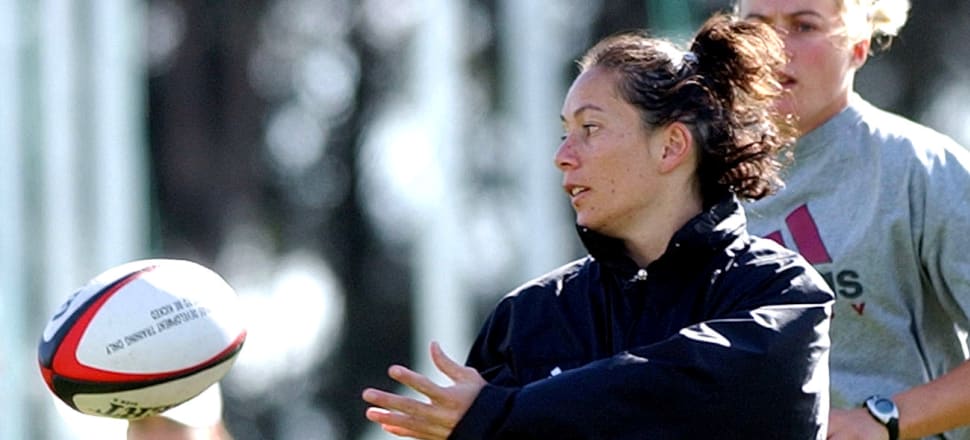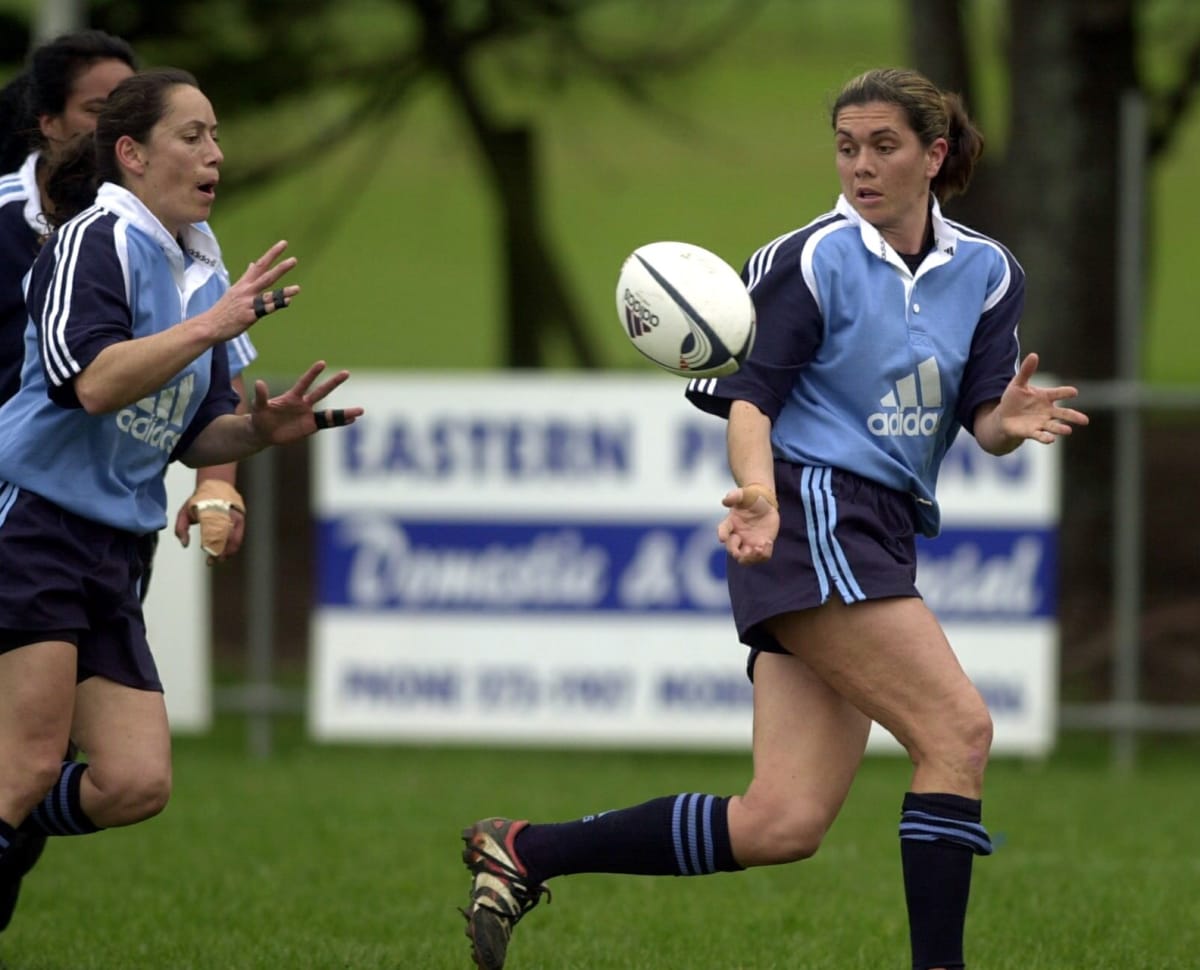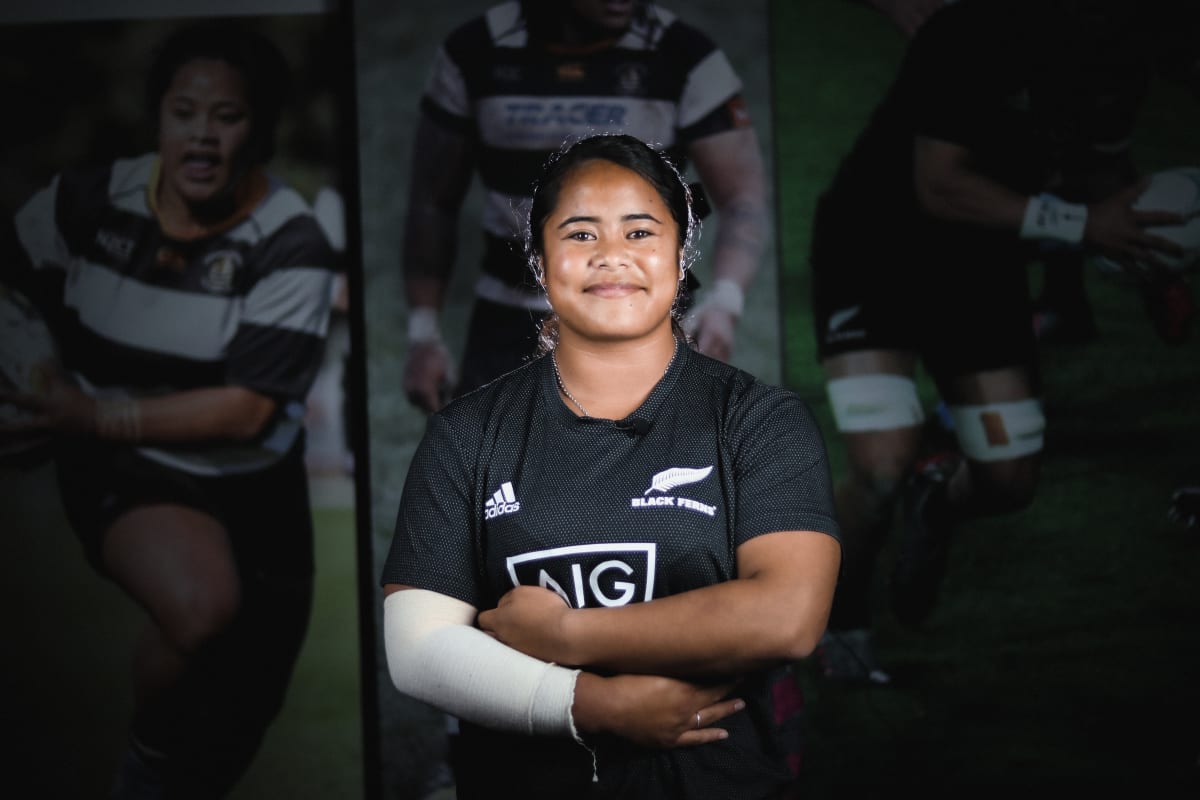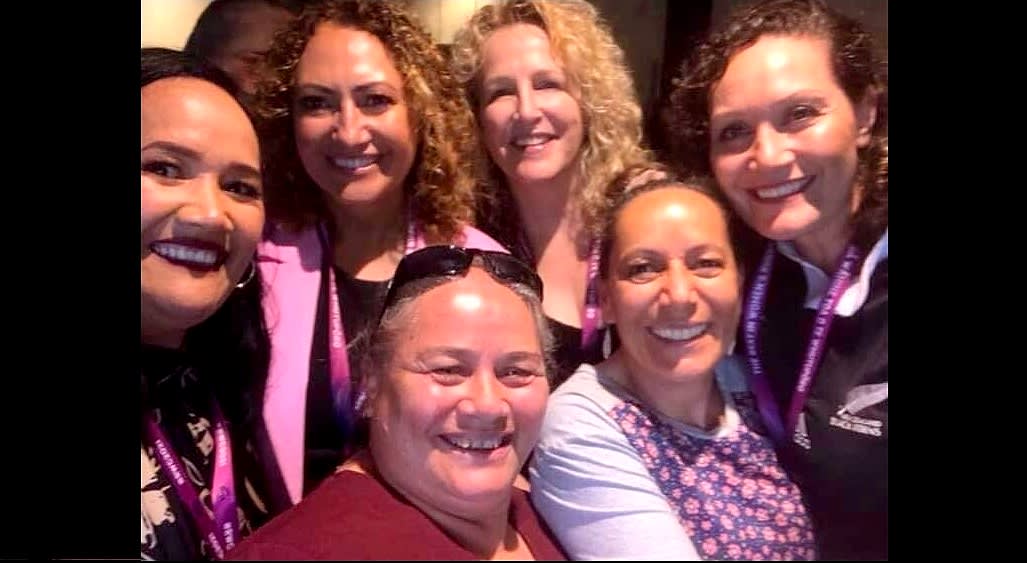
Unbeaten in the black jersey and still a try-scoring record-holder, Dianne Kahura told the Black Ferns to play without inhibitions before last year's Rugby World Cup. She tells Adam Julian she was proud to see them heed her advice.
Dianne Kahura knows a winner. She never lost playing 12 tests for the Black Ferns, and played pivotal roles in the 1998 and 2002 World Cup-winning teams.
At the 2002 World Cup in Barcelona, she was the leading tryscorer of the tournament, returning to the international stage after a break for “burnout” in 2001.
Kahura was playing touch, sevens, and rugby for New Zealand simultaneously. She was part of New Zealand sevens team who fashioned a perfect 22-0 record.
On June 6, 2022, the Black Ferns could hardly be described as winners. A mere 159 days before the World Cup final, and featuring seven debutants, they battled to an unconvincing 23-10 victory over Australia in Tauranga.
At least the win snapped a four-game losing streak from the diabolic 2021 Northern Tour, but the jittery display was hardly vintage stuff.
READ MORE:
* When the new Black Ferns coach made me cry
* Not a bad weekend to be a Fern
Kahura presented the jerseys to the Black Ferns for the Australia test, but wasn't even sure why she'd been asked.
"I was chuffed. But I walk down the street, and nobody knows who I am," Kahura laughs. "Allan Bunting called me. I was in New Plymouth at the time at one of my kids' sporting tournaments."
Kahura settled on two themes for her speech: 'Honouring the importance of the jersey' and 'Playing the New Zealand way'.
"When we won the World Cup in 1998, we kind of burst on the scene for everyone for the first time. People were trying to find out about us. They called us the 'Gal Blacks' and then it petered out," Kahura says.
"We were aware we had to be role models - we knew if something bad happened it would be an excuse to get rid of us. We wanted to create standards of excellence and leave a legacy of care on and off the field for the jersey.
"We'd play the game our way, to enjoy it, throw the ball around and be creative. A lot of the game has become prescribed which takes away individualism. Everyone had something to contribute - all I could do was run. Playing without inhibitions but with care for each other is the Black Ferns way."

Did Kahura really believe her words would resonate with a young squad of professionals, nine of whom weren't even born when she debuted for New Zealand in 1998 and scored four tries in their biggest ever win (134-6 v Germany).
"I got goosebumps straight away. There was something very palpable: The care for each other and the vibe was unreal," she says.
"There was a team room that had inspirational quotes and pictures on the wall acknowledging past players. It was awesome the connection they were developing with the past.
"The expectations are massive in the Black Ferns. It was obvious from my short time with them they'd got some of their essence back."
Fast forward to November 12, 2022, and Kahura is among the world record crowd of 42,579 watching the World Cup final at Eden Park. She was not aboard the bandwagon of 8000 spectators who snapped up remaining tickets in the hour after the 25-24 semifinal win against France. She secured her finals seat well in advance.
"I couldn't make the opening game at Eden Park where there was a reunion of the 1998 and 2002 teams. I'm a full-time Uber driver for my kids," she laughs.
"That day, we were in Palmerston North for the national secondary schools basketball champs."
Kahura has four children - three girls and a boy - none of whom, ironically, play rugby but are gifted in basketball, netball, cricket and waka ama. Her husband, Manuel, is a talented musician.
Back at Eden Park, England is on a world record 30-match winning streak and with their much-vaunted pack are warm favourites to dethrone the Black Ferns. The home side had heeded some of the advice Kahura had given them, by playing audacious rugby to reach the decider.
Kahura is located at the back of the North Stand beside her great mate and fellow Black Ferns World Cup winner Tammi Uluinayau (nee Wilson).
"It was amazing. There were a lot of old teammates and friends there so to reconnect with some of them was special," Kahura says.
"The game itself was stressful. Wow, talk about shifts in momentum and atmosphere. I really admired the way the girls stuck to their guns and kept on playing. Sure, they got a little lucky but sometimes you create your own luck."
On the wing, Portia Woodman is in menacing form making two big breaks before being knocked out of the contest in a red card offence in the 18th minute. Woodman's replacement, Ayesha Leti-I'iga, scores two tries, including what proved to be the winner in the 73rd minute.

Black Ferns wingers scoring tries in big tests. Few did that better than Kahura, who bagged 19 tries in her 12 tests, and 53 tries in 35 officially verified first-class games. That strike rate is as good as Ruby Tui (23 in 27), Louisa Wall (48 in 32), Portia Woodman (54 in 38), Vanessa Coutts (54 in 50), and Leti-I’iga (71 in 72).
And yet Kahura wasn't completely sold on rugby after her first match.
“I played touch for a team called Nuplex which had players like Monique Hirovanaa, Suzy Shortland and Ebony Doyle, all class players who played for Marist. They convinced me to give rugby a go. My first game was a 10-a-side match at Avondale Racecourse. I got a black eye and a fat lip and wasn’t keen on playing again," Kahura recalls.
“However, Liz Silcock lived down the road from me on the North Shore and needed to get to a Marist training and I was the person with a car. So, thanks to her, I stuck at it, got taught by some of the best players and coaches at Marist, and never looked back."
Three tries for Marist against Ponsonby caught the eye of Auckland selectors, and when she scored five tries in a game for the Storm on Eden Park Number 2, she was summoned to a Black Ferns trial.
"I remember there was a series of trials at the Burnham Military Camp just out of Christchurch, and it was arduous stuff. There wasn't the knowledge around strength and conditioning they have now which made for some pretty interesting exercising," Kahura laughs.
Following her destruction of Germany on test debut she scored another two tries in a 46-3 slaying of Spain in the next group match. She missed out on starting selection for the World Cup final against the USA with the more experienced Wall and Cootes preferred.
Coutts scored an unrivaled five tries in the 44-12 win while Wall, who Kahura eventually replaced, scored a try, and was named by preeminent rugby writer Steven Jones as the player of the tournament.
"One of the hard parts of team sports is you compete against your teammates who are your best friends to get the start."
The Black Ferns triumph resulted in a knee-jerk marketing campaign to find an appropriate jersey for the team. A jersey with a grey stripe across the front didn't cut the mustard. After one wearing, it was forever consigned to the dustbin of history.
That one time was when a nervous Kahura played fullback for the first time at the Sydney Football Stadium in a curtain-raiser to a Bledisloe Cup test, scoring a try. "There was a fuss at the time about the jersey and it wasn't very good looking, but you took what you could get at that time and never lost sight of the fact you were representing New Zealand," she says.
By 2000, Kahura was rampant. At the Canada Cup in Winnipeg, she scored two tries in a 41-0 crushing of the hosts and a hat-trick in a 32-13 success over Grand Slam winners England as the Black Ferns claimed overall honours.
Kahura was exhausted by 2001, balancing work on her family oyster farm with sport, so she opted to take a break from rugby. She changed after watching the Black Ferns lose 22-17 to England at North Harbour Stadium. It was the Black Ferns' first defeat in 20 tests stretching back to 1991. England's winning try was a length-of-the-field effort by winger Emily Fenton.
"I watched it on TV, unusual in those days, and couldn't believe it. I thought I could do something about it, so I committed to a comeback," Kahura says.
"Every player had to write a letter to Darryl [coach Darryl Suasua] explaining why they should be picked and what it meant to them to be a Black Fern. It was intense. I talked about what I'd done before and how I was willing to work even harder."

The Black Ferns, driven by the theme BTB (Better than Before), trained the house down before the World Cup in Barcelona.
In a case of déjà vu, Kahura scored four tries in a 117-0 initial slaughter of Germany and crossed the stripe against Australia, (36-3) too.
In the semi-final she was benched but when she was introduced as a substitute changed the match with a try and creation of another with her first touches of the ball. It was enough to earn a berth in the World Cup final - a tense 19-9 resistance of England.
Additionally, Auckland won the NPC that year by the length of the straight. Kahura was so good in 2002 that she scored a first-class record 19 tries in 11 games. Woodman scored 16 in 2022.
"I don't have a favourite try or specific memory of moments in matches, but we hardly kicked the ball because we couldn't. Anna Richards and Suzy Shortland were phenomenal. They'd throw these fast skip passes and encourage me to go the length of the field," Kahura says.
“One of the hard parts of team sports is you compete against your teammates who are your best friends to get the start. I regard Vanessa Coutts as one of the greatest wings ever. It wasn’t easy to take her place.”
Today Kahura runs an architecture with her husband; her children occupy the rest of her time.
She reflects on the Black Ferns' latest World Cup victory with candour.
"The Northern Tour was hard to watch, but the girls had so little rugby prior and there were some things in the planning that went wrong that were learned from. The hardest part was watching the likes of Les Elder carrying such a load as captain. I really felt for her and wish she had been better supported," she says.
"It's good for the sport though when the opposition improves. It's also easier to chase something than it is to stay on top."







